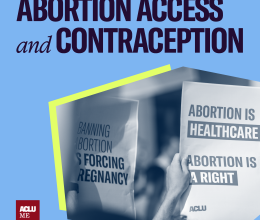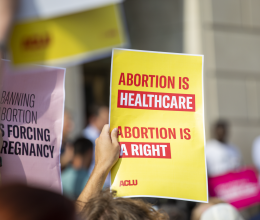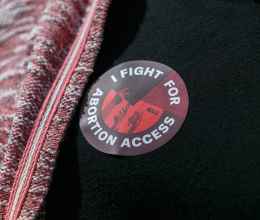Last week, the Center for Reproductive Rights (CRR) and Ibis Reproductive Health released a report showing that the states with the most abortion restrictions also have the worst health outcomes for women and children. The report, found here, exposes as false the claims that TRAP (Targeted Regulation of Abortion Providers) laws are for the benefit of women’s health and safety. According to the report, many states that have passed restrictive abortion laws have failed to institute policies that would promote the health and well-being of women and their families. The study defines “well-being” broadly, including health, social, and economic status.
The two organizations collaborated on this study in order to evaluate the claims that anti-abortion activists and policymakers make about abortion access and women’s health and safety. Because of the large number of abortion restrictions being passed every year (over 250 bills introduced in 2014 alone), the researchers were eager to come away with some evidence-based information to counter the claims that these legislators and anti-abortion activists were making.
Given how foundational claims of concern for health and well-being appear to be to the success of anti-choice policy efforts…We aimed to determine if the concern that anti-choice policymakers say they have for women, their pregnancies, and their children translates into the passage of state policies known to improve the health and well-being of women (throughout their life course, including during pregnancy) and children, or into improved state-level health outcomes for women and children.
The findings revealed what reproductive health advocates have always known about these restrictions – women's health is not the real aim. Overall, Ibis and CRR found that women's health is not a priority in the states with the harshest abortion restrictions. The report names Texas as an example of one such state. The notorious omnibus abortion bill there, HB2, has desecrated the reproductive health care landscape in Texas. Since its passage, the number of abortion-providing clinics in Texas has been cut in half – reduced from 14 to seven. There are now only clinics in five Texas cities. The number of women living more than 200 miles from a clinic has grown more than tenfold – from 10,000 to 290,000. Texas State Representative Jodie Laubenberg, the author of HB2, is quoted applauding the passage of the bill: “[I am] proud of the step we’ve taken to protect both babies and women.” Yet, on the topics of women’s health and children’s health, “Texas performs poorly across indicators of women’s health, children’s health, social determinants of health, and policies supportive of women’s and children’s well-being.” The study ranks Texas, with its 12 abortion restrictions, as 40th in overall well-being. Texas, along with Oklahoma, has the lowest children’s health scores.
There report includes some good news for Maine. Maine, with only four abortion restrictions, ranks seventh in overall well-being for women and children.









